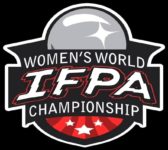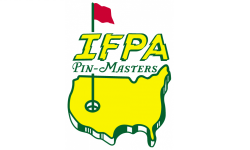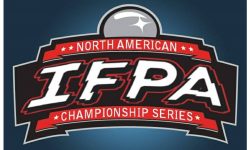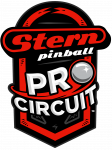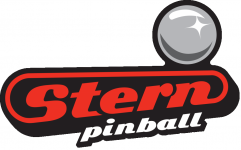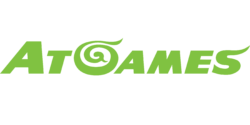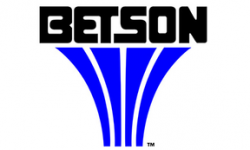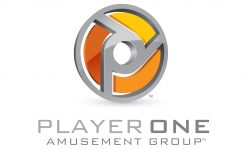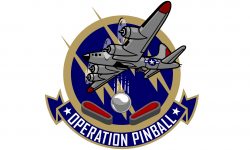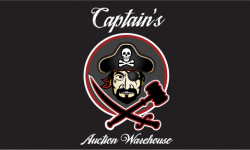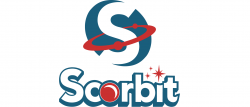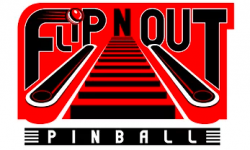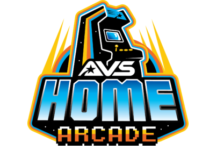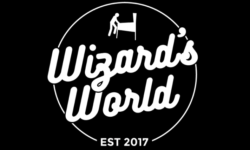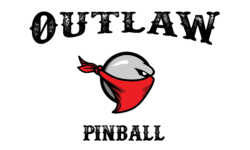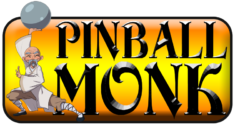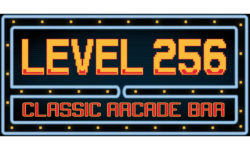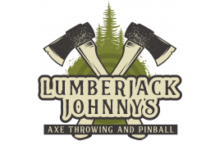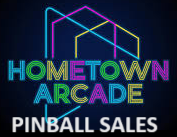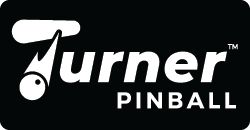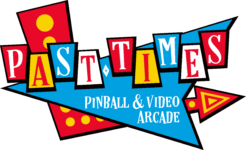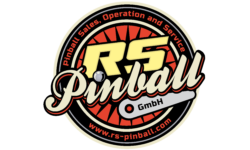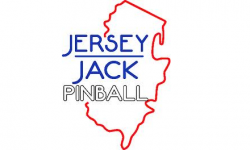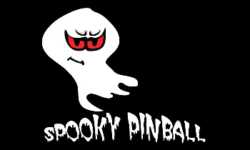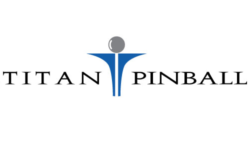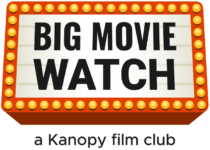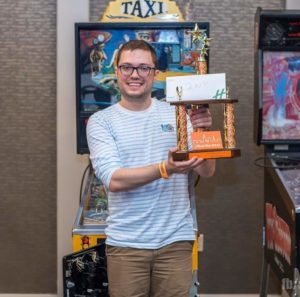 Louis Marx’s interview with Tournament Director:
Louis Marx’s interview with Tournament Director:
Lewis Bevans
Well, I am supposed to be doing these interviews for the IFPA a few times a year. Truth be told, since the last one that I published, I had a couple of mild strokes and then COVID hit the world … Well, it’s been a while, but it’s time to start writing again . . .
I am not tech savvy and people keep asking, “why don’t you do a podcast?” … Honestly, I don’t know how, so I choose to do this the old fashioned way.
Thus, I can do these over Zoom and such, but it turns out that a friend was “in the neighborhood”, so I have the unique pleasure of welcoming Lewis Bevans to my home here in Rowlett, Texas.
KEY:
LM = Louis Marx
LB = Lewis Bevans
LM: Welcome to Texas! What brings you to town?
LB: I work for a glass manufacturer about two hours northwest of Dallas. I try to give myself an evening or more to visit a tournament, go to a barcade, or in this case, do an interview for the IFPA.
LM: How often does work bring you to Texas
LB: Normally, it’s about twice a year, so maybe three times a year back at about 2018 or so I was traveling more often. But nowadays I tried to make it at least twice a year or so to check in with the plant and see how they’re doing around 2018.
LM: Let’s start with biographical info:
Where are you from originally?
LB: I was from Shepton Pennsylvania – close to Hazelton and about 45 minutes away from Wilkes-Barre/Scranton.
LM: …and where is home today?
LB: Just outside of Pittsburgh. Lived in Pittsburgh for 7 years and moved out of the city to Sharpsburg in 2021.
LM: Do you have any machines at home? If yes, how long have you been a collector?
LB: Currently in the basement, Batman 66 and the Shadow, then, at the Pittsburgh Pinball Dojo I have my Ghostbusters. Two more games, Firepower and Elektra that are currently, but will come when I finish the basement. I also have two project machines, a Star Trek TNG and Delta Queen. Bought my first machine in 2017 with my PAPA C Division winnings – that was the Delta Queen.
LM: When did you get into the life as a Tournament Official?
LB: A little bit after that 2017 event, I talked to Doug (Polka) and he was always looking for help running tournaments. I was also helping with the Wednesday weeklies at Kickback Pinball Café. In 2018, I was given the “callup”- Doug was looking for more Tournament Directors for Pinburgh and I was a candidate – I don’t even think I thought twice about it, I just said YES.
LM: When was your first LARGE event as a Tournament Director or Official? How did it come about for you?
LB: First large one was Pinburgh. I had helped out with Southern Fried that same year – so it wasn’t my first foray into a circuit event, but it was definitely my largest. PAPA ran a well oiled machine – even though we put in a whole lot of work, it didn’t feel like it. The diversity of rulings and unique situations.
LM: What was the first year for your events and/or leagues? How did it go?
LB: My first independent event was 2019’s Pinburgh PRE TOURNAMENT at Helicon Brewing. I was the sole TD for a 81-person knockout tournament and it ran pretty smooth. It helped that I had a lot of players that knew what was going on. It was still managing a lot of players with 40+ machines and getting everyone to bed at a reasonable hour.
LM: Let’s talk about Pinburgh… What was your role in the esteemed group of tournament officials?
LB: So a lot of the officials were on the same level. Anyone is authorized to make the rulings and we could call for backups for second opinions. I was also the go to guy for one off rule questions on the obscure solid states. After, we would break off into our divisions and both years, I was responsible for the E division. You have any interesting mix when you are choosing for the E division. You have a lot more creative freedom because you have access to games that other divisions wouldn’t want for playtime or other reasons. Solar Fire is my favorite example because, with E division everything was smooth – Doug picked up on it and brought it to ClePin Classics – needless to say, I played Eric Stone in the Finals of that and there’s pictures of me laying down, not so patiently waiting. I think one of the balls took 40 minutes.
LM: What’s the largest single challenge your faced at Pinburgh?
LB: The rulings themselves were fine, but when we’re setting up finals banks, you’re given an area and can swap out games. The biggest challenge and hassle is, after moving thing around, you have make sure everything works after the moves, is re-leveled, and adjusted. One year I was up until 1 or 2 AM just getting the machines ready.
LM: I don’t know about the northeast, but down here, we were all taken by surprise when they announced that they were liquidating. When did you know about their difficulties?
LB: I knew with the 2020 events not happening that there was going to be some potential issues, but nobody really expected it to be to that extent.
LM: A followup since youre more familiar with them – do know if they every thought about something like a GOFUNDME to keep from liquidating?
LB: I think it was too extensive of a need for a Go Fund Me page.
LM: Other than the obvious, because we all miss Pinburgh, are there any regrets?
LB: I do fondly miss having the full Pinburgh experience. For months leading up to the event, we’d be hosting twice a month events to put the games through their paces. Pinburgh never would have run as smoothly if we didn’t put in hundreds of hours of play testing.
LM: Are there any unique memories that you want to share?
LB: There was, at one point during ReplayFX 2019, Red Bull was giving away free drinks. Heaven forbid I got my hands on one. I’m usually an energetic person. Having me on an energy drink was essentially putting me on overclock, running to every light. I was way more energetic than any Tournament Director after ten hours should be. And it got to the point where one of the techs was going to yellow card me.
LM: How different is it to run larger versus smaller tournaments for you? What stands out?
LB: So, running a larger tournament tends to mean you have help. When I run smaller tournaments, im usually running them by myself or have one person deputized to help. For larger events, we usually have a larger team to help with decisions, 2nd opinions, or manage when multiple things are happening at the same time. Just as when I am working with smaller events I get more time to sit back and take in what’s going on around me or even watch a game or two. Gives you time appreciate the work that went into creating the event.
LM: Moving to some more biographical info, what’s your oldest or first pinball memory?
LB: I have to give two of them because I am not sure which one came first. First was a friend of mine had restored a Bally Star Trek. So I got to play that in their basement when I went over there. The second is one of the local arcades had a rescue 911 that I liked to play a lot. I think I was about 7 or 8 at the time.
LM: What brought you back to pinball as an adult?
LB: I moved to Pittsburgh in 2015 and to bring it back to Kickback – I saw a pinball café that seemed interesting – so I decided to go in and start playing some. I was really interested in Theater of Magic at the time. I wanted to get high scores and win free plays – I branched out to other machines and met everything and went from there. Ive met so many people and travel for pinball now – I am sol glad that one day I just randomly decided to go in and play some pinball.
LM: Were you playing competitive pinball before becoming an Official or Director?
LB: Yes – my first unofficial tournament was on linked NBA Fastbreaks at Kickback – That’s when I started being a competitive pinball player. It took me about two years from that point to start helping to run events or be interested in Directing.
LM: When did you get into competitive pinball?
LB: That in 2015
LM: When you started running your own events, were there already other events and/or leagues running in your city? In your region?
LB: So, up until 2021, there was really only one major league, the Pittsburgh Pinball League. Other events and tournaments would essentially be in that ecosystem. Since then , there have been a few new leagues that have come around, especially during Pittsburgh’s summer break. Two of the ones that come to mind are the Superflip Pinball League, which I am a TD for, and then the Iron City Pinball League.
LM: What prompted you to start your events and/or leagues?
LB: wanting more pinball to happen. Not that Pittsburgh didn’t have a vibrant pinball community, but I saw space for more and wanted to make it happen.
LM: Directing Pinball Tournaments can be a thankless job. Any regrets or second thoughts?
LB: No – I don’t regret, even if I don’t play in my tournaments and they becoming successful, I don’t regret stepping back and making sure that they are the best tournaments we can run. That’s anything from a 44 player target match play for my wife’s birthday to being a part of the majesty that’s Pinburgh.
LM: What’s the craziest ruling you’ve had to make as a director?
LB: During one of the Pinburghs, there was a Williams Indiana Jones, where we had a stuck ball on the apron. It was something where it was truly wedged into the apron so hard that you couldn’t remove the glass from the game. What we ended up doing is wiggle the glass down far enough to get a magnet wand in there. Then we worked the glass down slowly and carefully while holding the ball with the magnet, working hard to keep it from draining since it was at the center of the apron. Took two of us to do it, but we were able to get the ball out of the game and get it on the flipper for the player. My words are not doing it justice – it was a truly magical stuck ball.
LM: What about other truly memorable moments that you want to share?
LB: As a player, from the other side of the flipper, playing and winner the PAPA C division was a truly magical experience. I was somewhat new and trying to see where I was skill-wise. It was such a rush to finally win something in such a tough city to do so. Even if IFPA rankings don’t say it now, its very hard to play in a city where you have DJ, Cryss, Aleksander, Jared, and a few other. That experience is a large part of what motivate me to want to create similar experiences for others.
LM: How often do you deal with participants getting belligerent? Have you ever had to remove or disqualify any players?
LB: It does happen occasionally. Pittsburgh is usually pretty well behaved but eventually we run into a player or two that don’t agree with a decision or takes issue with a process. I had to remove a player once. I was channeling some of the more hot headed nature that I have. I do regret how I behaved when I did that but I do feel like I made the right decision.
LM: I can completely relate – I had one of my regulars go off the deep end a couple of years ago to the point that he was refusing to leave, even after the threat of calling the police was levied. Very unusual behavior for this person.
LB: We try to keep it pretty civil in Pittsburgh.
LM: How do you attract new players? Do you have any marketing secrets to share?
LB: For me, my marketing secrets are mostly just building a good reputation as both a member of the pinball community and a tournament director. When somebody comes to a tournament that I am running, they can be assured that they are going to be treated with respect as well as going to be in a tournament that will run smoothly. That 44 player match play I mentioned was kind of a Hallmark because we had 23 women. Its unusual to see that kind of a turnout, even if its for a birthday for one of their members.
LM: How many participants do you have at normal events now?
LB: For one off events it could be anywhere from 30 to 50. For the 1st season of the Superflip Pinball League, just finished in Mid-May, we had 36 players.
LM: How many participants did you have at your first solo event?
LB: Probably be a Wednesday weekly and that would around 20 people.
LM: What is your preferred or favorite tournament format to run? Why?
LB: I’ve been really interested and recently have run a few tournaments with the Amazing Race Tournament Format for the finals. Its a unique format that, once you understand how it works, its not hard to setup and run and it keeps the players flowing so there’s not a lot of downtime.
LM: Is there a specific format you don’t like to run? Why?
LB: I will never play in a flip frenzy that I am running so I can actually make sure that tournament runs smoothly. That’s the only one that really has that larger asterisk for me.
LM: Do you play in your own tournaments? If yes, how much harder is it to focus on tournament play when you’re running an event, versus simply playing in one?
LB: So, for a lot of tournaments I run, I step back, to make sure tits running smoothly for the players. If I have other tournament directors that I can deputize to give rulings, then I am more likely to play.
LM: What haven’t I asked that you feel the IFPA world might want to know?
LB: With Doug and some of the folks around Pittsburgh, we really lost a lot from the pandemic. I cant say anything because Im not even sure if were going to get things together, but we are looking to bring back some events in Pittsburgh.






